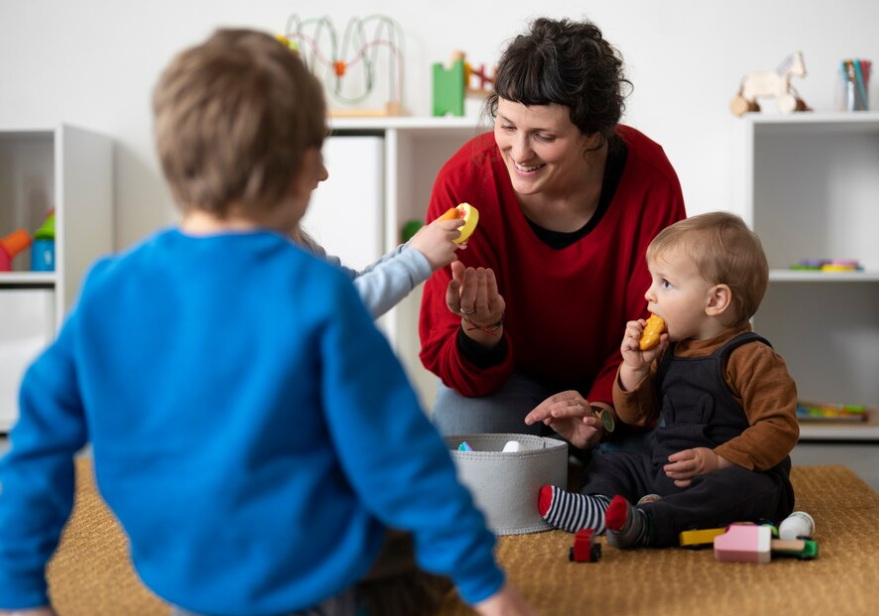Social skills are foundational to a child’s development, and the nursery years are when children begin to learn the basics of interacting with others. The vision and culture of a nursery setting play a significant role in shaping these social skills, helping children build empathy, communication abilities, and cooperation. A positive, inclusive, and supportive environment encourages children to thrive socially, and the impact of this culture lasts well beyond the nursery years.
Vision: The Guiding Light for Social Development
A nursery’s vision sets the tone for everything that happens within it. It reflects the values, goals, and philosophies that guide the educators and the activities. When a nursery has a clear vision that emphasizes respect, kindness, and cooperation, it creates a framework for social interaction. Children, especially at a young age, are highly impressionable and look to adults to understand the expectations of social behavior.
If the vision is centered around inclusivity and diversity, it teaches children the importance of accepting differences and practicing empathy toward others. This vision gives children a sense of security, allowing them to confidently engage with their peers, share their feelings, and work together to solve problems.
For instance, a nursery that focuses on building strong emotional intelligence will guide children to recognize and understand their emotions as well as the feelings of others. This helps children respond appropriately in social situations, whether it’s offering comfort to a friend or negotiating a turn with a toy.
Culture: A Collective Influence on Social Skills
While the vision is the foundation, the nursery’s culture brings it to life through day-to-day interactions and shared experiences. The nursery culture involves the collective behaviors, practices, and norms that children are exposed to. From the way teachers interact with children to how children communicate with each other, culture has a profound influence on social development.
In a nursery with a culture that promotes collaboration, children learn how to work as a team. They share resources, listen to others’ ideas, and understand the importance of taking turns. This culture fosters patience, cooperation, and respect—essential building blocks of good social skills.
Moreover, a nursery’s culture is shaped by the staff’s interactions with children. When educators model positive communication, active listening, and conflict resolution, they not only teach children these skills but also reinforce their importance. In a culture where disagreements are resolved peacefully and every child’s voice is heard, social skills flourish.
How the Environment Enhances Social Skills
Both vision and culture are evident in the physical environment of the nursery. Spaces designed for group activities, open areas for free play, and quiet zones for one-on-one interactions all influence how children develop socially. An environment that encourages socialization, role play, and group work allows children to practice these skills naturally.
For example, in a nursery where group discussions and cooperative games are common, children learn how to express their opinions, collaborate with others, and take turns. These experiences play a critical role in helping children understand social norms, develop communication strategies, and resolve conflicts constructively.
The Role of Parents in Vision and Culture
Parents are key partners in reinforcing the vision and culture of a nursery. When there is a consistent approach between home and nursery, social skills are further developed. Parents can share insights with nursery staff about their child’s unique social needs, while educators can offer tips for fostering social skills at home.
By working together, parents and educators create a supportive network that helps children feel more confident in their social interactions both inside and outside the nursery. This partnership allows children to receive a consistent message about the value of social skills and respectful behavior.
Conclusion
The vision and culture of a nursery do more than just shape a child’s educational experience—they have a profound impact on how children develop socially. A nursery that prioritizes inclusivity, kindness, and communication will provide children with the tools they need to form healthy relationships, communicate effectively, and cooperate with others. As children internalize these values and practices, they carry them with them into their future social experiences, creating a foundation for lifelong skills that will serve them well in school, at home, and in the broader community.
Frequently Asked Questions (FAQs)
1. How can the vision of a nursery help improve a child’s social skills?
The vision of a nursery sets the tone for how children are encouraged to interact with others. A vision focused on inclusivity, respect, and kindness teaches children how to build relationships and resolve conflicts. It fosters an environment where social skills are actively developed through guided activities and positive role models.
2. What is the difference between vision and culture in the context of a nursery?
Vision refers to the overarching goals and values that guide a nursery’s approach to education and social development. Culture, on the other hand, is the day-to-day manifestation of those values through interactions, behaviors, and practices. Both work together to shape a child’s social experiences.
3. How can teachers encourage children to develop better social skills in a nursery setting?
Teachers can encourage social skill development by modeling positive behavior, setting clear expectations for social interactions, and providing opportunities for group activities. Teachers should also guide children in resolving conflicts, taking turns, and practicing empathy in their interactions with peers.
4. Can nursery culture impact a child’s ability to communicate effectively?
Yes, nursery culture plays a key role in communication development. A culture that values open communication, active listening, and respect encourages children to express themselves clearly and understand others. When children are exposed to these behaviors, they naturally adopt them in their own interactions.
5. How do parents contribute to the nursery’s vision and culture?
Parents can reinforce the nursery’s vision and culture by supporting the same values at home. By working with the nursery staff, parents can provide valuable insights into their child’s social development and continue fostering positive social behaviors in the home environment. This partnership ensures consistency and strengthens the child’s learning.

